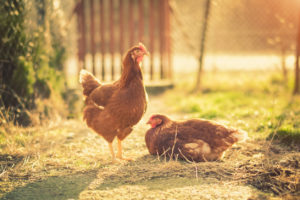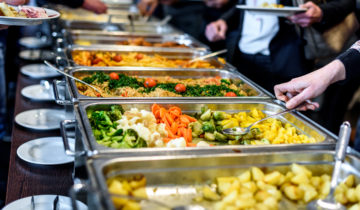As a true staple food, eggs are included in every part of a meal, from starter to dessert. Who would want to go without them? Whether sweet or savoury, served on their own or as a side dish, the list of possible uses goes on and on. Crêpes, omelettes, hard-boiled, fried and scrambled eggs are part of our daily routines. Between the different labels, designations and uses, it can be easy to get a little lost. Here are some tips for navigating the world of eggs.
PRECISE REGULATIONS
Eggs’ vulnerability to bacteria makes them a delicate foodstuff, so they are heavily regulated to ensure the highest possible level of food safety. An initial European directive was adopted in 1999, defining minimum standards for farming laying hens, followed by another, on product traceability, in 2004. The goal of these is to guarantee the provenance and transparency of the products and to improve food safety.
Eggs are categorised by the type of farm where they were sourced:
– organic farms
– free-range farms
– cage-free farms
– battery/cage farms.
Another regulation applies to the “fresh” and “extra-fresh eggs” designations, which indicate the maximum number of days between laying and processing:
– extra-fresh: maximum of 9 days
– fresh: maximum of 28 days

WHY SHOULD YOU OPT FOR FRESH AND EXTRA-FRESH EGGS?
There are real advantages to cooking with fresh and extra-fresh eggs.
You see, the faster an egg is used (for consumption and for processing), the less likely it is to spoil. Speedy use preserve the sensory qualities (taste, texture, colour, etc.) which are so important in food. When used as close as possible to the time of laying, those characteristics remain intact.
Another advantage lies in the reduced risk of microbial contamination. The shell forms a natural protective barrier, aided by the external part of the egg white. But in the event of a microfissure in the shell, the more fragile yolk can be tainted, and bacteria can develop. The fresher the egg, the lower the risk.
In addition to handling time, the risk associated with salmonella has led institutional catering chefs to stop using shell eggs. To overcome this constraint, Cocotine launched a pasteurised shell egg called Cocok. That product guarantees absolute food safety for more delicate culinary preparations and for diners with weakened immune systems. Thanks to its additive-free heat treatment, there is no risk of salmonella, and the eggs’ sensory and nutritional properties are preserved.
COCOTINE, THE PARTNER OF INSTITUTIONAL CATERING CHEFS
Cocotine, a French co-operative brand, uses eggs produced close to its plants, primarily located in Brittany, which do not pass through any middlemen. As a result, the time between production and processing is very short, a factor which preserves all of the eggs’ nutritional qualities. Minimal transport time means maximum freshness! Cocotine has developed a whole range guaranteed to be fresh or extra-fresh (liquid egg products, peeled hard-boiled eggs, beaten egg whites and more), suitable for any use: ready to cook, garnish or serve.
Our R&D Department continuously innovates in order to make the most of egg proteins (in soft-boiled eggs, omelettes, etc.), to the great benefit of school and corporate catering chefs and diners. We strive to be as closely aligned as possible to professionals’ expectations, so as to offer the best possible solutions for their needs. To make sure of this, a panel assesses the sensory quality and ease of use of each of our innovations.
It is our aim to supply chefs with products which combine convenience, safety and quality, from both a nutritional and a flavour perspective.







